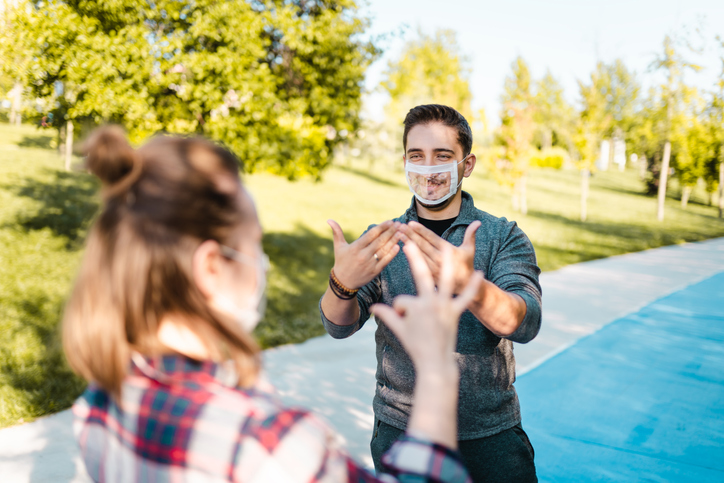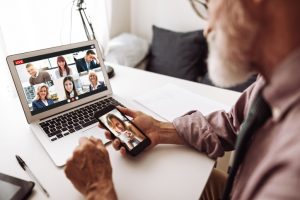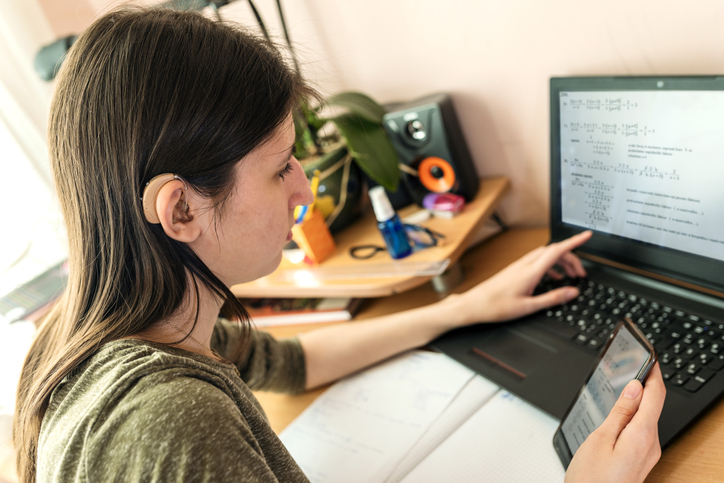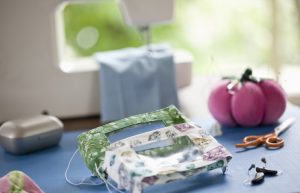
August 7, 2020, by Emma Rayner
Study reveals how people with hearing loss are affected by Covid-19 lockdown
A new report into how people with hearing loss have been experiencing the Covid-19 lockdown has found there have been many negative effects on them, but also a few unexpected positive ones.
The study was carried out in a rapid turnaround by experts in hearing disability at the University of Nottingham’s Hearing Sciences Scottish Section at the Glasgow Royal Infirmary.
When lockdown happened in March, the team devised an online questionnaire for hearing impaired volunteers to fill in to map their experiences over the period. The survey asked how certain restrictions and safety measures imposed during lockdown affected their behaviour, emotions, hearing performance, hearing aid usage and tinnitus.
The survey was completed by 129 adults with varying degrees of hearing loss living in the Glasgow area and yielded some interesting results:
• Video calls were used more frequently than before lockdown, but enjoyment of group video calls was mixed. Live subtitling during video calls was only used by a minority but was appreciated by those who did. Those participants with comparatively better hearing used their hearing aids less than before lockdown.
• Widespread increased anxiety, especially in the worse hearing group, particularly about verbal communication situations and not being able to access their audiology services. Some people also reported dwelling more on their hearing loss during lockdown than in normal times. However, people with more severe hearing loss showed substantial relief at not having to attend challenging social gatherings.
• Most of the participants said they found it hard to converse with people in face masks due to muffled sound and not being able to see lips moving. A majority also said they would like to see all key workers equipped with transparent face masks to improve communication for people with hearing loss.
• There was some weaker evidence of face mask fixtures interfering with hearing aids worn on the ear and of tinnitus having worsened during lockdown.
 The study throws up several recommendations including the widespread adoption of clear face masks and easy access to live subtitles on video calls. The research team is also calling for manufacturers of hearing devices to develop processing modes and accessories that are specifically designed for video calls.
The study throws up several recommendations including the widespread adoption of clear face masks and easy access to live subtitles on video calls. The research team is also calling for manufacturers of hearing devices to develop processing modes and accessories that are specifically designed for video calls.
Leading the work, Director of the University’s Scottish Section of Hearing Sciences, Professor Graham Naylor, said:
“When lockdown happened, we had to act fast as we were very curious to find out about the particular experiences of people with hearing loss during this stressful period. We think the study has indeed captured some important insights into the interactions of hearing loss and the extensive safety measures brought in to mitigate the effects and extent of the pandemic.
“Our results confirm some consequences which have been widely mentioned in anecdotal reports, such as the challenges of conversing with people in face masks, but also illuminate aspects which have not been evidenced before, including heightened rumination about one’s hearing loss and (conversely) relief about not having to face the challenges of social gatherings.”
‘Covid-19 Lockdown Affects Hearing Disability and Handicap in Diverse Ways: A Rapid Online Survey Study’ is published in the journal ‘Ear and Hearing’ and was funded by the Medical Research Council and the Chief Scientist Office of the Scottish Government.
No comments yet, fill out a comment to be the first



Leave a Reply